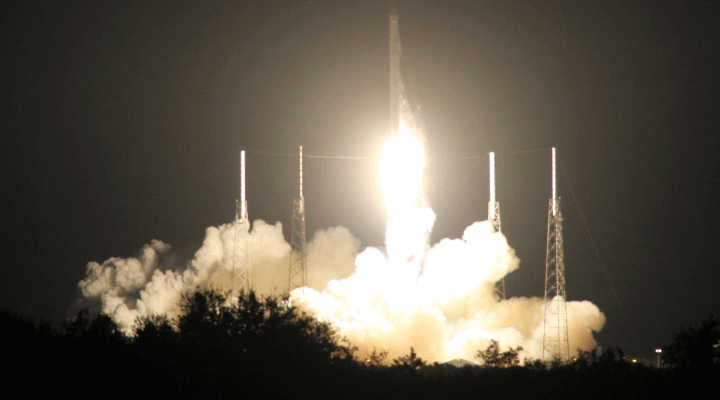Elon Musk — the man who brought us the first commercially viable all-electric car, built the world’s largest backup battery in South Australia, is working to build an underground train that will make Washington, D.C. and New York City just a half hour apart, and regularly launches satellites into orbit – had a bad day on Sunday. But his failure presents an opportunity to reexamine just how difficult rocketry is, just how many things can go wrong, and just how far North Korea has to go to make its nuclear program a truly reliable deterrent.
A picture-perfect launch, then apparent failure
Musk’s other high-profile company, the Space Exploration Company, better known as SpaceX, launched one of its Falcon 9 rockets from Cape Canaveral, Fla. Sunday evening, carrying a classified payload known only by its code name, Zuma. If you watch the webcast, all appeared to go normally. The rocket lifted off without incident. Its main engines cut off at the right time. The first stage separated smoothly, and in what has become almost routine, returned itself to Cape Canaveral so it can be refurbished and reused for a later mission.
But news later came that all did not go well. According to several outlets, the classified satellite, built by Northrop Grumman, failed to reach orbit. While several online commenters hypothesized that the anonymous source (aka, leakers) were engaging in misdirection, there wouldn’t be much point to that.
You and I have only the word of SpaceX and the government to go on, while Russia and China can track any new satellite in the sky with relative ease. Plus, with SpaceX in a bitter fight with the United Launch Alliance, the joint venture between Lockheed Martin and Boeing which had a monopoly on national security space launches for a decade until Musk challenged it directly, there is little incentive for SpaceX to go along with a ruse that the satellite failed to insert into its proper orbit.
The government has not made any public comment regarding Zuma’s fate, but SpaceX has made several more on-the-record statements about how its rocket performed as it was supposed to perform. That makes it fairly clear that something did indeed go wrong.
It truly is rocket science, after all
Even though SpaceX usually makes rocket launches look easy, often in spectacular fashion, the F9 program has had some notable failures. In 2015, an F9 ferrying cargo to the International Space Station blew apart shortly after launch, and in 2016, Mark Zuckerberg’s hopes of expanding into space were delayed when his $200 million satellite was destroyed when an F9 exploded on the launch pad during fueling.
SpaceX itself produced “How Not to Land an Orbital Rocket Booster,” a YouTube blooper reel (with more than 4.3 million views) of the times it tried and failed to safely land its boosters.
Which brings us back to North Korea. The Hermit Kingdom certainly made spectacular strides in advancing its missile technology in 2017. for that it deserves begrudging credit. But launching a missile nearly straight up is not the same thing as launching one on the precise trajectory necessary to have it wind up in the intended location.
Speculation is that the Zuma payload failed to separate properly from the F9’s second stage. A nuclear warhead would also have to separate from its booster in order to continue on its trajectory towards its target. A slight error in either direction will either send it to a fiery death, or leave it in low-earth orbit.
For comparison, the American Minuteman-III ICBM reaches an altitude of 700 miles at the apogee of its trajectory. The Iridium satellite constellation (whose replacement satellites reach orbit on SpaceX F9s) orbit at just 483 miles.
So the next time someone tells you how good the North Korean missile program is, just bear in mind that even SpaceX, a company with as much money as a space program could want, and easy, sanctions-free access to every technology and the greatest minds under the sun, sometimes shoots a dud.
Rocket science isn’t easy. If it were, every country would have its own space program. Even North Korea.



